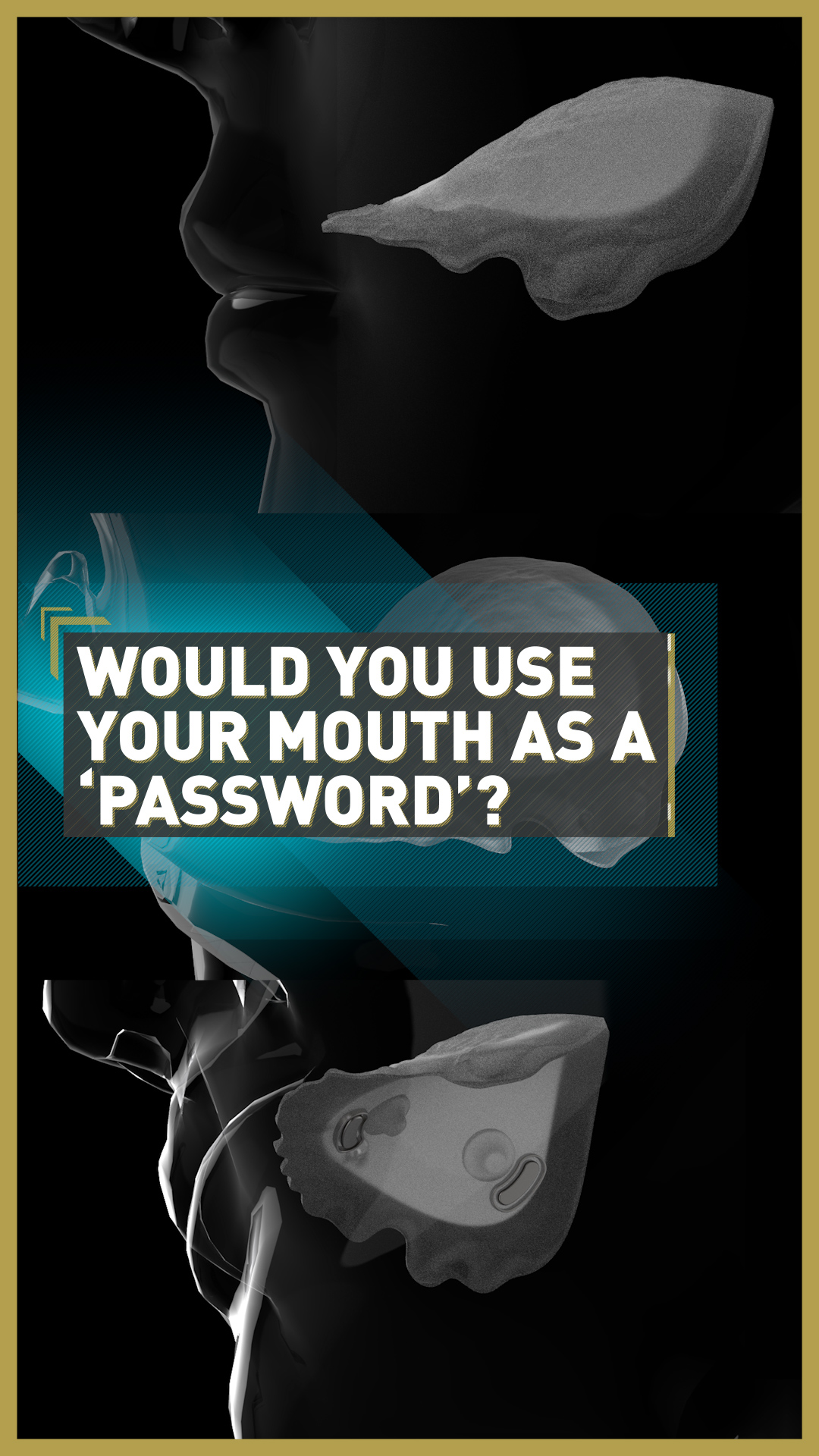02:12

Fingerprints and faces have become a common replacement for passwords – but what if we could also use our mouths?
That future might be around the corner as a group of students from the Royal College of Art and Imperial College London are creating a device that could theoretically do just that.
"We are augmenting everything about our human body. We're augmenting our fingers… we have all these are devices, but really, we don't do anything for our mouths," Beren Kayali, one of the students, told CGTN Europe.

The group, whose company is called Project Stealth Tech, is designing a biometrics reader that would be worn on the roof of a person's mouth.
It would be used to protect high-security infrastructure, such as the military, airports and electric plants.
Once developed, the biometric reader would verify a person's identity and then, through Bluetooth, could interact with doors or facilities.
The device would also have a built-in two-way verification system that would be unique to each individual.
The person who owned the device would set expected responses to different tastes when they first purchase it. If that person needed a second level of security, the device would use electricity to stimulate that tongue's taste buds. When the person then tasted a flavor, they would know to use their tongue to touch a specific place on the device.
Since they programmed it, they would be the only person who would know the expected response to those specific tastes, proving their identity.

The biometrics reader would be made by a 3D printer. /Project Stealth Tech
The biometrics reader would be made by a 3D printer. /Project Stealth Tech
Biometrics are a popular password replacement because they are generally more secure and data breaches can be financially draining.
In 2019, the total cost of data breaches in the U.S. was $8.19m, according to an IBM Security report. In 2006, that number was $3.54m.
According to Kayali, the appeal of this device is that the mouth is as unique as a fingerprint, but harder to duplicate.
"You can change your password, but you cannot change your biometrics. It is not like rocket science to steal someone's identity," she said.

The device is thin enough that it would be invisible to other people. /Project Stealth Tech/
The device is thin enough that it would be invisible to other people. /Project Stealth Tech/
This device is in the early stages of development, and won't be a reality for another eight years.
But the students have also found spin-off ways to use the reader that are far more likely to be used in the near future.
For example, they say they are developing a version that would be used by professional athletes to check their lactate levels when exercising, specifically endurance athletes.
This is currently done through taking blood tests after training.
This device would be a replacement for those tests, as sensors in the reader would check the lactate levels in saliva as the athlete trains.
According to Paul Mendieta, another founder of Project Stealth: "[Blood tests] are invasive. Put simply, athletes are obviously getting tired of doing that, but they have to do it anyway. We're trying to provide an easier way to access that information."
This version of the device could be ready to hit the market in two years.
Video editor and animator: Natália Luz.

